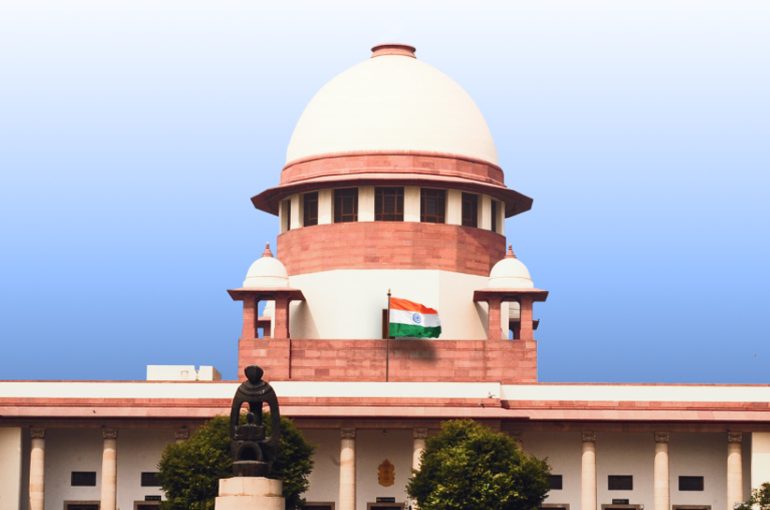THE RIGIDITY OF SENTENCES AND THE FLEXIBILITY OF JUSTICE: A CONSTITUTIONAL REFLECTION

INTRODUCTION
The Supreme Court of India in Mahendra Vishwanath Kawchale and Anr. v. Union of India, Writ Petition (Crl.) No. 314 of 2022, decided on 2nd September 2025, examined the constitutional challenge to Section 376DA of the Indian Penal Code, 1860, as inserted by the Criminal Law (Amendment) Act, 2018. The case was heard by a Division Bench comprising Justice B.V. Nagarathna and Justice R. Mahadevan. The Petition, filed as a Public Interest Litigation, assailed the mandatory life imprisonment provision for gang rape of a woman under sixteen years of age, contending that it violated Articles 14 and 21 of the Constitution.
BRIEF FACTS
The Petitioners, appearing in person, challenged Section 376DA IPC on the ground that it prescribes only one punishment—life imprisonment for the remainder of the convict’s natural life—without allowing the trial court any discretion.
An impleadment application was also filed by Project 39A, National Law University, Delhi, supporting the Petitioners’ contention. On the other hand, the Union of India, argued that the gravity of the offence justified the severity of the punishment.
ISSUES OF LAW
- Whether the prescription of a single mandatory punishment under Section 376DA IPC violates constitutional guarantees under Articles 14 and 21 by removing judicial discretion.
- Whether such a provision disregards the principles of proportionality and sentencing policy by not considering mitigating circumstances.
- Whether the convict’s rights of remission, both constitutional and statutory, remain available despite the stringent wording of the section.
ANALYSIS
The Court carefully weighed the submissions. On one hand, the Petitioners contended that the absolute mandate of life imprisonment till natural life foreclosed the possibility of individualized sentencing and thereby violated fundamental rights. They argued that the absence of judicial discretion undermined the fairness of the sentencing process.
On the other hand, the State emphasized the legislative intent behind the amendment, highlighting the seriousness of gang rape on minors. Parliament, in its wisdom, had deliberately chosen stringent punishment as a matter of criminal policy.
The Court noted two key aspects:
Judicial Remedies: Even if the Sessions Court is compelled to impose life imprisonment, the accused retains the right to appeal before the High Court and the Supreme Court.
Remission Rights: Importantly, convicts retain constitutional rights under Articles 72 and 161, as well as statutory rights under Sections 432 and 433A CrPC (and corresponding provisions under BNSS, 2023). Each State’s remission policy remains applicable, meaning the “remainder of natural life” wording does not extinguish the possibility of reduction.
However, the Bench refrained from delivering a conclusive ruling on the constitutional validity of Section 376DA. It observed that the larger question of mandatory sentencing without alternatives requires adjudication in a concrete factual context rather than in an abstract PIL. Accordingly, the issue was left open for future consideration.
CONCLUSION
The Supreme Court disposed of the Petition, declining to strike down Section 376DA IPC in a Public Interest Litigation setting. While upholding the Parliament’s prerogative to impose severe punishment for heinous crimes, the Court simultaneously underscored the continuing relevance of constitutional and statutory remission powers. By keeping the constitutional question open, the Judgment reflects a cautious judicial approach: acknowledging the tension between deterrence-driven legislative mandates and the flexibility inherent in the judicial process.
Ultimately, the decision illustrates the Court’s deference to legislative wisdom in matters of sentencing policy, while leaving the door open for future scrutiny when a real case arises with tangible facts.
SARTHAK KALRA
Senior Legal Associate
The Indian Lawyer & Allied Services
Please log onto our YouTube channel, The Indian Lawyer Legal Tips, to learn about various aspects of the law. Our latest Video, titled “Legal Aspects of Exports in India | Export Laws Explained | Advocate Sushila Ram Varma|” can be viewed at the link below:
https://www.youtube.com/watch?v=2PWPKz1yr-E&t=71s





































Leave a Reply